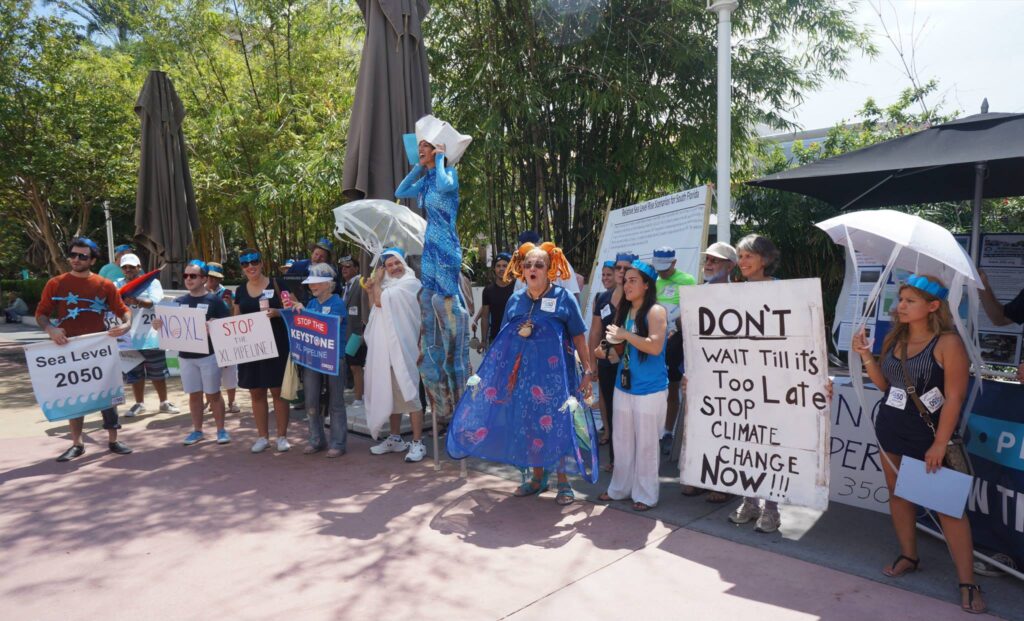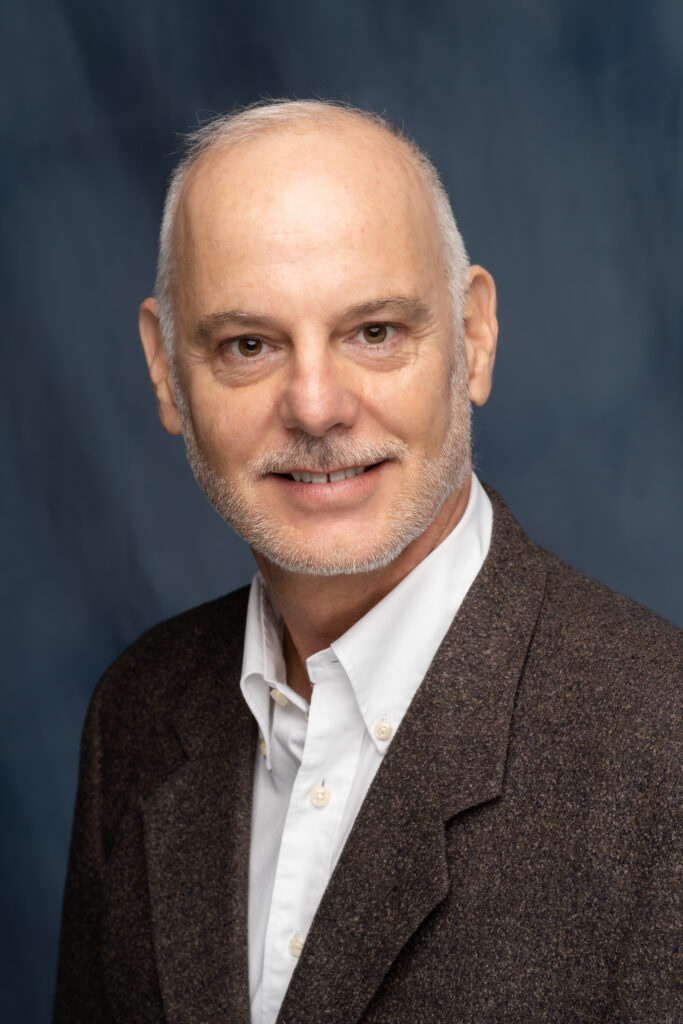By Jim W. Harper
I have decided to buy spiritual insurance to address burnout from climate activism.
The price of the insurance has been voluntary, free membership in the United Church of Gainesville since 2019. This decision connected me to like-minded people (many former hippies, myself excepted) who put social consciousness into action, such as through the Creation Justice Movement.
Many climate activists have dismissed religious institutions because of their lack of true action. But we could become allies in small communities to address the soul-crushing pressure of climate anxiety.
Beginning around 2012 and living in Miami, I decided to channel some of my climate anxiety into education and activism. I studied environmental issues at Florida International University and found informal networks of climate change educators and activists. Some professors questioned my latter choices, but I also saw some show up to protests. They had anxiety too.

One protest in 2013 took place on famed Lincoln Road in the heart of Miami Beach. Our crew had bonded at a training event and formed the group 350 South Florida as a local branch of 350.org, a global movement to reduce carbon dioxide levels back to a healthier 350 parts per million (today’s level is nearly 420 ppm). This campaign was focused on stopping the Keystone XL pipeline in the central U.S.
King Poseidon marched in sandals alongside our group of about 40 protesters, from the shores of the Atlantic Ocean to the strip of high-end retail shops. During the week he was a professor at the University of Miami, but on this Saturday he was a king.
Did the protest work? It definitely confronted the tourists with something completely different, and we had fun singing a parody of the “Under the Sea.” Nationally, the pipeline was effectively killed in 2021 when President Joe Biden signed an executive order against it.
By 2021, I was in a different place. I had joined a growing number of South Florida’s “climate refugees” by moving to more elevated, central parts of Florida, and I had stopped participating in protests. Both national and local politics had warped into surreal territory, and I felt the burn. I needed balm.
Church was not first on my list, believe me. My activism burnout reflected a much, much worse case of church burnout in the 1990s, and I consider myself a recovering evangelical. Like an alcoholic avoiding bars, I avoided the places that served the elixir.
Then I attended a training with the Community Weatherization Coalition, a Gainesville environmental group, and it was hosted at a church. Huh, I thought, what is this place?
By 2022 I had become a leader in the church’s effort to become a Creation Justice Church, an official designation of its denomination, the United Church of Christ. We just submitted our application last week to become the sixth such congregation in Florida.
Creation Justice Churches pursue a process of reflection and write a covenant or statement of commitment. They form “green teams” to take action, and in our case it became 25 people in a Creation Care and Climate Justice Task Force.
I have gone from asking #WWPD (What Would Poseidon Do) to #WWJD (What Would Jesus Do). I’m not asking what American Jesus would do to address climate change; I’m asking the Living God for guidance as we strive to save our only home.
It’s exhausting to save the world. But I’m not trying to do that anymore.
I’m trying to live in community; I’m trying to connect with wise people; I’m trying to leave a legacy of hope instead of despair. Like the great activists of the past, I will ground myself in Spirit.
Religion and faith should not be dirty words to climate activists, even while we recognize that some religious leaders get it completely wrong. They were also wrong about women, slavery, sexuality and a host of other issues. We cannot allow the misguided to deny us our God-given spirituality.

Will spiritual insurance work? I’ll tell you this: No insurance devised by humans will save us from climate change. Just ask the insurance companies themselves.
I’m suggesting that a cure for climate anxiety may be a return to the basics of religion: supportive, small communities with grand ideals. We can fight together when we are strong; we can retreat together when we are weak. It’s the power of “we.” What Will We Do? #WWWD?
Now that I have spiritual insurance, I feel pretty good about facing the long haul and the existential issues. In fact, I expect to have some failures and some accidents along the way. No worries: The insurance has me covered.
Jim W. Harper is a former environmental reporter for the Biscayne Times who now lives in Gainesville.
If you are interested in submitting an opinion piece to The Invading Sea, email Editor Nathan Crabbe at ncrabbe@fau.edu. Sign up for The Invading Sea newsletter by visiting here.



